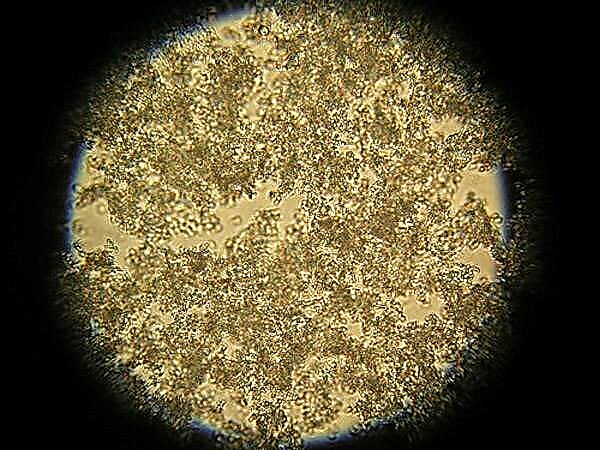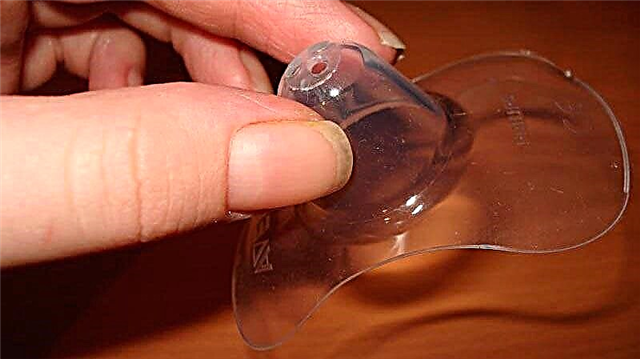
In the fifth month of pregnancy, everything seems wonderful and amazing. Carrying a baby under the heart is not yet difficult, pregnancy is not burdensome. The woman feels cheerful and full of energy. At the same time, it is time to choose a dowry for a child, because most couples already know the gender of the baby and can safely choose a stroller and an envelope of the desired color.
The fifth month sums up the first half of pregnancy. With the end of this period, a woman will be able to mark a kind of "equator" - exactly half of the gestation period will be left behind.

General information
Not all expectant mothers have a clear idea of how much it is in weeks. One thing is obvious - the second trimester of pregnancy is coming, the most calm and not burdensome. The first, dangerous for the child and the woman, has long been left behind, the difficult third has not yet begun.
If you count the gestational age as all doctors and obstetricians do - from the first day of the last menstruation, then obstetric weeks in the fifth month will be exactly four - 17, 18, 19 and 20 inclusive... In our usual calendar calculation, one week contains more days than 28, and therefore, if we compare it with the wall calendar, then the fifth month will include 18, 19, 20 and 21 weeks.
To avoid confusion, mark the beginning of the fifth month at 17.5 obstetric weeks and count down 4.5 weeks. This will end the month when you have exactly 20 weeks and 3 days.
Women in this period are less worried, because the risks of miscarriage or missed pregnancy have already significantly decreased. A certain regularity, smoothness of movements, slowness comes, which still have nothing to do with the awkwardness that future mothers are distinguished by at a later date.

Fetal development
Your baby is very big and is growing very quickly. Now and in the second half of pregnancy, he will gain the necessary weight. Nothing new will appear inside the child's body, everything is formed and now the organs are working, debugging interaction. Believe me, the baby in the womb has no time to get bored - he actively learns the space around him. His bones have become stronger, they accumulate, absorb calcium from the mother's body. Mimic muscles are developed - the kid knows several options for funny faces and grimaces with might and main.
Here's what happens on different weeks of this month.
17.5-18 weeks
The first week of the fifth month makes the baby more proportionally folded: the rate of growth of his head slows down somewhat, while the rest of the body continues to grow. Thanks to this, he gradually ceases to look like a large-headed alien with short legs and long arms.
Fruit weight reached 220-250 grams, managed to grow up to an average of 22 centimeters.
The brain is already well developed enough for the baby to start actively mastering conscious voluntary movements. Now, more and more often, he catches the umbilical cord, not because it is simply within the reach of the hands, but because it is interesting and informative. The kid learned to suck his thumb. At this time, the baby can begin to catch with his hands and legs that have already grown up, but it is not yet possible to drag them into his mouth.
The heart, stomach, intestines, kidneys, endocrine glands work, and blood cells are produced.


19 week
Growth rates have peaked and now this process will proceed a little slower than before. Now the main task facing the child is not to gain centimeters, but to gain weight. The crumb "got heavier" up to 300 grams, grew up to 24 centimeters... The first reserves of subcutaneous adipose tissue begin to be deposited in it.
The kid is very mobile and active, but not all women are able to feel it yet. For example, the majority of primiparas do not yet notice discernible movements, but mothers who have experience of pregnancy and childbirth usually already feel the baby's somersaults.
From this time on, your child begins to hear fully... If earlier he perceived sounds inside his mother's body and coming from outside as vibration, now the structures of the inner ear have finally taken shape and he hears just like you and me. Not everything reaches through the stomach, amniotic fluid to small ears, but he can already distinguish the loud sounds of the outside world, and he also knows the voice of his mother and father perfectly well, he is soothed by the beating of the mother's heart and the hum of blood flowing through her vessels.
You can start reading fairy tales to the little one and singing lullabies, talking to him affectionately. He hears and perceives everything.

20 week
This is the middle of your term. An important date for you and your child. The baby meets the "Equator" of pregnancy with growing up to 26 centimeters and weighing about 350-370 grams.
His appearance changes, the baby no longer looks pathologically thin and wrinkled. Small cheeks appeared. The skin reaches a new level of development and becomes four-layered. The degree of protection is increasing - soon the child will no longer need the original lubricant and lanugo hairs that cover his entire body. But for this, all four layers of his skin must become more durable.
Life with tightly closed eyes bored the child. At this time, he will begin to try to open his eyes, but for now these will be only timid attempts... This is how the blinking reflex develops.
The child is now better protected against threats from the outside, since from this time he has his own immunity. The defense system, of course, is immature, weak, but the first immune cells are already being produced, a start has been made.
Women usually start to feel wiggle this week.... If this did not happen, please be patient and wait a little longer, perhaps you have an inactive “sleepyhead” or simply have no experience of experiencing such sensations.
By the way, at this time the baby designates which hand will be the leading one - he already prefers either the right or the left. In rare cases, both hands work with the same activity, like both hemispheres of the brain, and then the child will be born ambidextrous.

21 week
The last three days after week 20 end the fifth month. And the child approaches this stage with weight gain - he recovered to 400-420 grams and grew to almost 28 centimeters.
The skin begins to acquire a normal shade, because the epidermis and dermis are now separated from the blood vessels by a rather impressive layer of subcutaneous fat. It is very important to accumulate it - after birth, a child with a lack of subcutaneous fatty tissue (malnutrition) will experience serious problems with maintaining the heat of his own body. To prevent this from happening, nature made sure that the baby got plump forms in advance.
An active leap forward has been made by the brain and nervous system - millions of new neural connections allow the child to better control his body and learn new reflexes necessary to survive in a new environment after birth.
By this time, the babies already have a semblance of a regime - they sleep and are awake in a certain rhythm.

Mom's well-being
In the fifth month, the belly begins to grow, and in some of them the belly, small yesterday, turns into a rather noticeable rounded "ball" in just a few days. It's good if a woman has prepared in advance for quick changes in her own appearance, otherwise it may turn out that there will be absolutely nothing to wear to work or study. It's time to change your wardrobe, because the growth of the abdomen will now be rapid.
The size of the abdomen at this time depends not only on whether the baby is large or small, he is one or two children, but also on how much amniotic fluid is, where the placenta is fixed, how wide the hips the expectant mother has. Later, the growth of the abdomen is noticeable in obese women with wide hips. Earlier, the abdomen begins to be noticeable in thin ones, with a narrow pelvis, with the location of the placenta on the anterior wall, and also with polyhydramnios.


In any case, the belly looks very neat in the fifth month. If a woman does not want to advertise her position, she may well hide the pregnancy behind loose, well-chosen clothes. If it seems that the belly is not growing at all, it is worth discussing this with your doctor - any obstetrician has an impressive arsenal of reasons and ways to calm the expectant mother in this situation.
It is especially recommended for those who are worried to get a fetal doppler - this simple home device with an ultrasound sensor will allow mom to listen to the fetal heartbeat at any time to make sure that the baby is alive and everything is fine with him. The same acquisition will be useful for ladies who are in a panic about the lack of movement in the fifth month.

At this time, nothing bothers much - the weight gain is not so great that it is difficult to walk, the uterus is not so big as to squeeze the internal organs and cause their functional disorders.
Slipping pain in the lower abdomen on the sides and in the back may be slightly disturbing. The back does not always hurt, but only occasionally and not much. The reasons should not cause concern: the ligaments that hold the uterus are stretched, and the center of gravity also changes.
Changes that may be in the state of health at this stage of bearing a baby.
Decreased hemoglobin levels, anemia - the condition develops due to an increase in the amount of circulating blood. The reserves of calcium and iron in the current period of a woman are depleted, everything is taken by the child, who needs these elements for the normal development of the musculoskeletal system and hematopoiesis. It is imperative to do a blood test and, based on its results, start taking iron supplements. Even for those with hemoglobin within the normal range, it is recommended to add more iron-containing foods (buckwheat porridge, liver, red meats, apples) to the diet.
Discharge may turn yellowish... This is made possible by the action of the hormone progesterone. White or colorless discharge, moderate, does not leave marks on the laundry, is also considered normal. They may have a slight sour smell or no smell at all. There are no menses at this time, it is extremely dangerous to believe the speculation that the "fetus is washed" when bloody discharge appears. This is a threatening sign, so you need to see a doctor immediately. Brown, gray, greenish discharge should also be of concern - this may be a sign of infection.
The chest grows a little more and becomes quite large... Many pregnant women do not have colostrum for the first time during this period. If it bothers you a lot, you should buy a special bra with inserts (similar to a nursing bra). Colostrum cannot be squeezed out. But with its appearance, the likelihood of infection in the milk ducts increases, because colostrum is a valuable breeding ground for bacteria. Now you need to wash your breasts twice a day with warm water without soap, monitor its cleanliness. Primiparous usually have no colostrum at 4.5-5 months.
Itchy skin appears in the area of stretch - on the lateral parts of the mammary glands, abdomen. The more actively the breast increases, the faster the belly grows, the more itching can be. A woman is recommended to use a fat baby cream or use special remedies for stretch marks (striae).
It is imperative to inform the doctor about the beginning of perturbations.... This will help him once again make sure that the deadline is set correctly. From the moment the first movement appears in a primiparous woman, it usually takes 20 weeks to give birth, and in a woman giving birth again - about 22 weeks. The movements are still very delicate, gentle. It is very easy to confuse them with intestinal peristalsis, and therefore women who have no experience in detecting movements are advised to try to lie on their backs, completely relaxed, to eat something sweet before that or drink a glass of warm milk. Most often, the first movement is recorded in the evening, when the expectant mother is getting ready to sleep and is completely relaxed.
Heartburn, constipation - unpleasant symptoms, but for many, alas, they are quite real. They are caused by the action of the same pregnancy hormone progesterone. It causes relaxation of the smooth muscles of the uterus in order to reduce its tone. At the same time, the tone of the esophagus and intestines decreases.

In general, the condition of women at this stage is satisfactory. No toxicosis. The night's sleep improves, the headaches that regularly tormented her in the early stages gradually recede. The mood becomes more stable, without sudden changes.
Many begin to think about how the birth will go, worry, feel fear. At this stage, it is worth taking a psychoprophylactic course of preparation for childbirth.... Already now, relaxation methods, mastering the correct breathing will be useful, which will not only allow you to cope with fears, but also in a completely natural way will help to anesthetize the birth process.

Do's and don'ts?
At this time, it is important to take seriously the doctor's recommendation to establish a proper balanced diet. The process of mineralization of the child's bones damages the woman's body, because she loses calcium, her teeth can start to hurt, and her nails can break. It is important to add dairy products, cottage cheese, fresh herbs to your diet.
Don't do the following.
Eat for two and starve... In the first case, you can gain excess weight, which will increase the likelihood of gestosis in late pregnancy, in the second, the child will receive less nutrients. The optimal calorie content of the daily diet is 2500-2700 Kcal.
Use alcohol, drugs and any medication that is not approved by your doctor... Many drugs have a teratogenic effect and can negatively affect the development of the fetus. And although organogenesis has ended and the baby is formed and protected by the placenta, all this should be refrained from.
Lift weights and get nervous.
Wear tight clothes, tighten your belly and walk in high heels.
Lie on your back for a long time - The growing uterus now presses on the vena cava in this position, which can lead to loss of consciousness and acute oxygen starvation of the child himself. The best position for the expectant mother is on her side. It's time to start mastering it, since now you will have to sleep in it until the very birth.

So far, much more is allowed than prohibited, and therefore you can safely go on vacation to the sea, if you want, flying on an airplane is not prohibited, representatives of airlines will not even ask if a woman has a doctor's certificate that she can go on an air trip transport. There are restrictions on exposure to the open sun - avoid it, but swimming in sea water will be beneficial.
Sex is not prohibited if the woman has no pregnancy complications (isthmic-cervical insufficiency, placenta previa, etc.). For all the complications that can be aggravated by intercourse, the doctor usually warns of the risks. If in doubt, just ask at the reception if you can have sex.
The couple should now pay attention to the choice of position for intercourse. The missionary position is already unsuitable due to the fact that you cannot put pressure on your stomach. Consider this. It is also undesirable to engage in anal sex (the likelihood of developing hemorrhoids increases), as well as to practice deep penetration.
Doctors do not recommend spouses to use lubricants in the fifth month of pregnancy.


Analyzes and examinations
In the fifth month, the mother is waiting for the usual reception at the antenatal clinic - with weighing and measuring the height of the uterine fundus. The fetal heartbeat is already being listened to with an obstetric stethoscope. For this appointment, you need to pass a general urine test and a blood test (so that you can determine if there is anemia).
At this time, the woman will have a second prenatal screening, which will include "Triple test" (biochemical blood test) and ultrasound. Usually a referral is given from 16-17 to 20 weeks... At the same time, it is no longer necessary to do a blood test on the same day with an ultrasound examination, as it was in the first trimester. Usually, a blood test falls at the very beginning of the fifth month - at 17-18 weeks, and an ultrasound scan is performed closer to 20 weeks.
As in the first case, the probable risks of chromosomal pathologies will be assessed, but using different markers. Based on the results of the screening, the woman will either be completely reassured or sent for additional examination if the risks are high.
Please note that screening does not apply to mandatory examinations, it is only recommended by the Ministry of Health for all pregnant women. But a woman always has the right to refuse if she considers it right.
The rest of the tests and examinations this month are recommended only for individual indications.

You will learn more about the development of the fetus in the fifth month from the video below.



